Marshfield Clinic’s Resident Well-Being Committee was formed in 2004 to help promote a healthy and humane learning and work environment for the housestaff by ‘shining a light’ on those resources currently available to them, including Program Administration, Division of Education, Resident Business Meetings, Employee Resource Center, Behavioral Health, and Grievance Procedures.
What is Well Being?
Well-being is a continuous process involving self-awareness and healthy choices resulting in a balanced life.
During residency this process results in a strengthened sense of engagement and accomplishment. Wellbeing supports a resident’s acquisition of knowledge, clinical performance, and positive attitude. These benefits combine to strengthen resilience to the challenges of training.
Dimensions of well-being include: physical; emotional; intellectual; spiritual; social; cultural; occupational; and, environmental.
Prerequisites to well-being include: feeling engaged and empowered ; maintaining physical health with rest, healthy diet, and regular exercise; achieving a balance of work and time away from work; being present in the moment; understanding one’s own` limitations and those of others.
Division of Education support for your well-being in training is one example of the Marshfield Clinic Health System's support for clinician well-being. MCHS joined the National Academy of Medicine's Action Collaborative on Clinician Well-Being and Resilience in December 2017 with the submission of the MCHS Commitment Statement. We also view the 2018 Charter on Physician Health as a very useful guide for RWBC's work with residents and advocacy with our system to support your well-being.
Activities of RWBC
Consultations with Residents
A primary role for RWBC is to provide a confidential consultation service to residents where they talk with RWBC members about their personal, interpersonal, professional, and program concerns. Consultations are strictly confidential. No information about the contact is shared with the resident’s program or the DOE unless issues of serious impairment, risk to personal or patient safety or criminal activity emerge. Consultations are typically held after 5pm with two members of the RWBC.
We listen, help you explore your concern from different perspectives and support you in developing a plan to address your concerns. We help link you to resources and others if that is part of your plan as well. Each year between 12-19 percent of residents see us for consults on a wide range of concerns. Is consultation with RWBC helpful? Over 120 residents consulted RWBC and 95 percent of those residents reported it to be both suportive and helpful. The odds are strongly on your side that RWBC can be of assistance, so please consider contacting us.
Retreats
Each year RWBC sponsors a day long off site retreat for all the residents and fellows. DOE and your programs release you from daytime service after am rounding/report/etc to attend a day of activities to foster your management of stress and enhance your sense of community with other residents. Please check here for agendas, photos and videos for retreats since 2013.
These retreats continue to evolve based on resident input and we look forward to you joining us and offering ideas.
Advocacy
The RWBC works with DOE and residency programs on wellbeing topics. Information is shared about new resources and concerns. Recommendations are offered in support to resident wellbeing and concerns are highlighted based on resident input to us. As new rules and regulations are implemented that affect programs and residents RWBC supports communication of context for the changes and caring for the residents as we deal with changes.
Resident Well-being Committee Member Statements
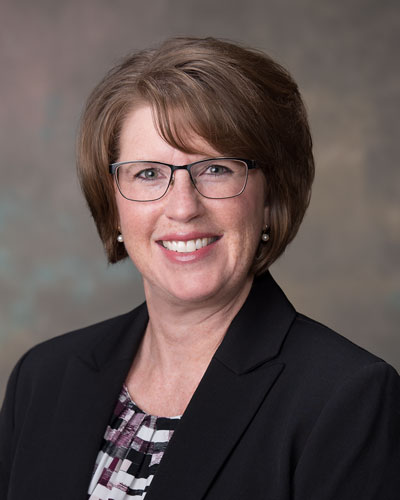 Jennifer Michels, Ph.D., ABPP
Jennifer Michels, Ph.D., ABPP
Department of Psychiatry and Behavioral Health
Choosing the profession of medicine for one's career is a noble endeavor, requiring vast knowledge, skills, dedication, tolerance for high levels of stress, and sacrifice. All of this can come at the expense of personal well-being. As a clinical psychologist, I have dedicated my life's work to improving the well-being of others. In my roles as a clinical supervisor, program director, teacher, and mentor, wellness in training has been at the forefront of all that I do. I joined the Resident Well-being Committee to extend my commitment and passion for improving professional well-being in medical training, clinical practice, and in the culture of health care systems. When we are healthy and part of systems that prioritizes our health and wellness, we can offer the best of ourselves. Career demands, along with personal roles as a wife and mother, lead to frequent challenges to my own well-being practices. I have come to deeply appreciate that well-being is a life-long, imperfect pursuit. I often find myself needing to "start again" as life gets in the way. My hope is that you will reach out to me and other members of the RWBC when you experience challenges along the way. My door is always open to you for support.
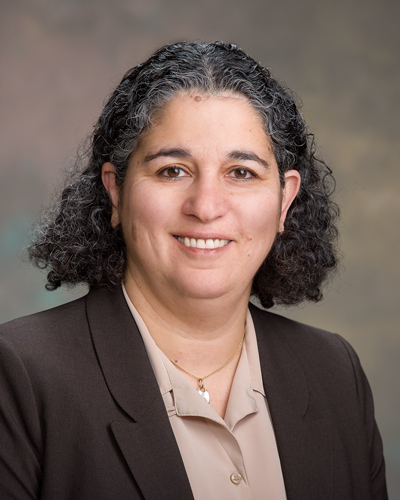
Rana Nasser, M.D.
Department of Infectious Disease
On most days, I love my job. Some days, I have to remind myself why. The challenges of medicine are many, and as residents train in recognizing and treating diseases, so must they train to keep themselves sane while they do it, a more challenging task. This is where I see the role of members of the resident well-being committee: they have been through the experience, still love what they do, and have committed to lending a helping hand. I have lived and practiced in different cultures, and by the nature of my role as an infectious disease physician, interact with many residents. Stop me in the hallway anytime something's on your mind: you might just give me a break from a day where I'm having to remind myself why I love what I do.
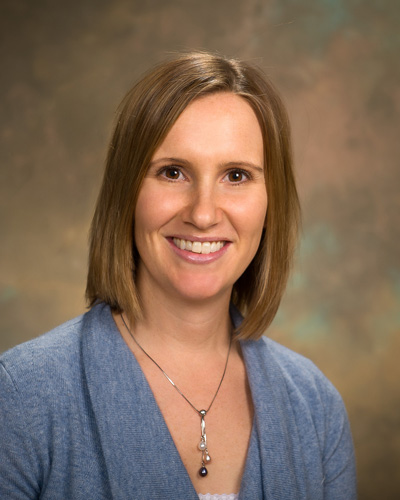
Kristen Polga, M.D.
Department of Internal Medicine
As a physician, your daily focus is on caring for others, helping others, and giving yourself to others. For most of us, this was a big part of our desire to pursue a career in medicine. Some days, this can be extremely satisfying and rewarding, but other days, it can be overwhelming and exhausting, especially if we don't also make an effort to care for and give to ourselves. Finding balance between work, family, and self-care has been one of the biggest challenges I have faced as a physician, and as my practice and family life have evolved, so has my approach to finding balance. While I am certainly not an expert, I have been persistent in seeking out ways to meet this challenge, and I would be happy to share my experiences and thoughts. Reach out anytime! I am always happy to talk.
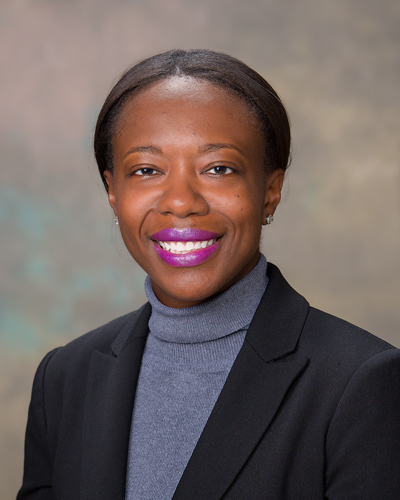 Rosemary Reriani, M.D.
Rosemary Reriani, M.D.
Department of Nephrology
I truly believe that medicine is a rewarding career, but I find that many times I need to remind myself why I chose medicine. Other times I have needed my family, friends and colleagues to remind me of the reason for my commitment to a medical career. I was lucky enough to go through all my years of medical training with a very supportive family and two sisters who went through medical school at the same time as I did. For sure, I would not have made it without their support in my most difficult and darkest moments.
You are living life daily in the midst of your training. There will always be challenges and stressors that will present themselves during this time. Your need for balance, self-care and well-being is a constant. Your success at managing your personal life plays a big role in your success as a physician. When life happens, the RWBC is available to you.
I joined the RWBC to provide support and a listening ear. Having recently graduated from nephrology fellowship, I can relate to many of the challenges that residents encounter. So please know that I am always available to provide mentorship, support and encouragement.
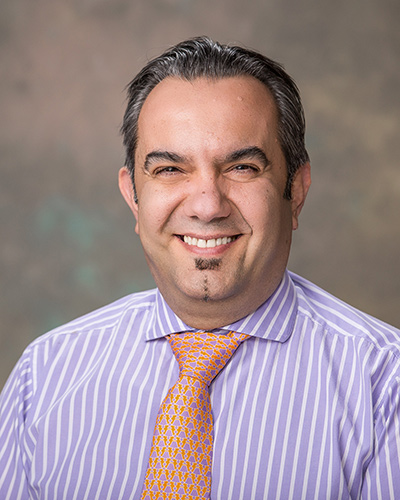 Athanasios Soskos, M.D.
Athanasios Soskos, M.D.
Department of Hospitalists
Try to put anyone in a profession with high levels of responsibility and stress, erratic sleep patterns and family responsibilities and then put random amounts of money in their bank account from time to time and most people would quit. Doctors, on the other hand, tend to stick it out; after all, we chose that and love what we do and we will choose to do it again and again. No wonder we have personal lives that, at times, face challenges and seem to fall apart and days we wish to escape from all this stress. I can tell you that I have faced these situations in my life considering that I have lived so far in four countries practicing medicine in between. Being one of the hospitalists, I have interacted with many residents throughout medical wards and consultation services . For those who know me, they know what I like and how I interact; for those who do not know me , I would say "come, let's have a cheerful conversation." So please stop me if you see me. I am here to discuss with you whatever is on your mind.
"Health is a state of complete physical, mental and social well-being, and not merely the absence of disease or infirmity." - World Health Organization
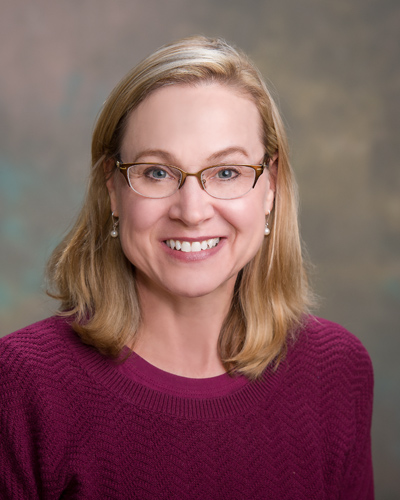 Victoria Viegut, M.D.
Victoria Viegut, M.D.Department of Pediatrics
As a primary care pediatrician, I work with residents every day. I appreciate your dedication and professionalism. As a working wife and mother with a busy pediatric practice, I also appreciate how much stress you are under to balance your personal and professional lives. I look forward to being available for questions, concerns, discussions, or problems. I am no expert on well-being, but I am looking forward to learning with you. The longer I am in practice, the more I see we have to take care of ourselves before we can take care of our patients.
RWBC poster for sharing
